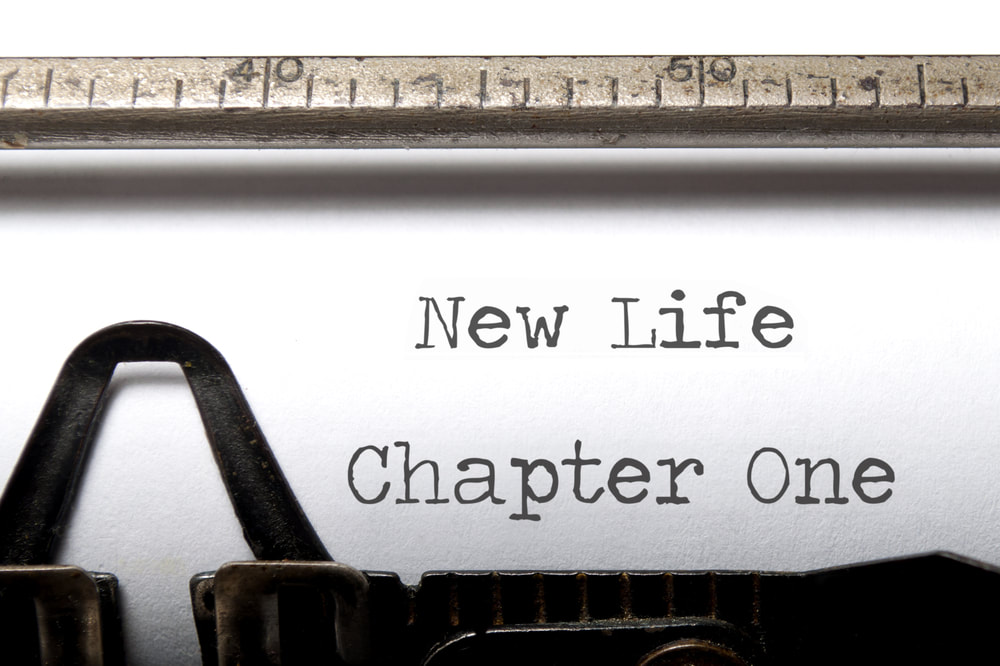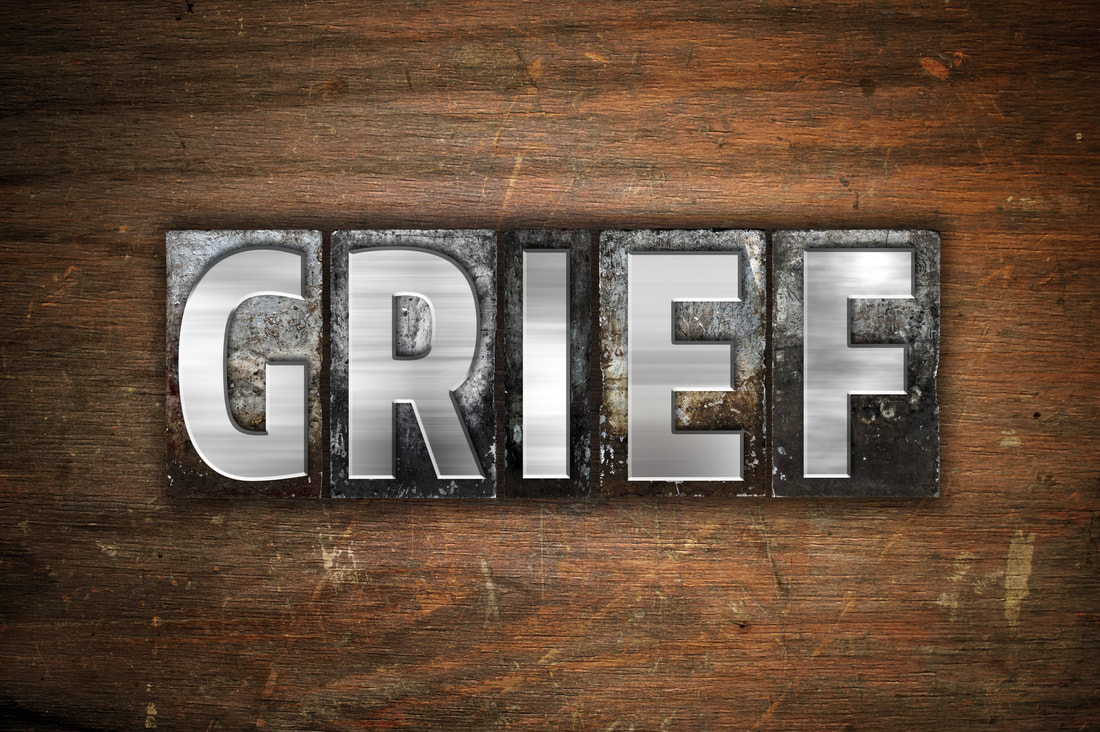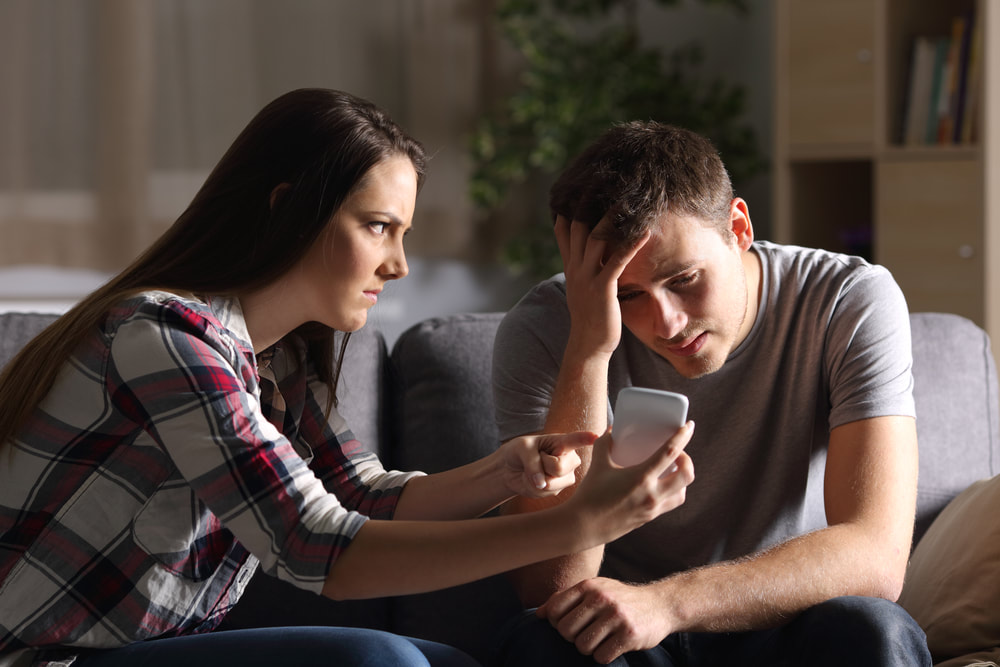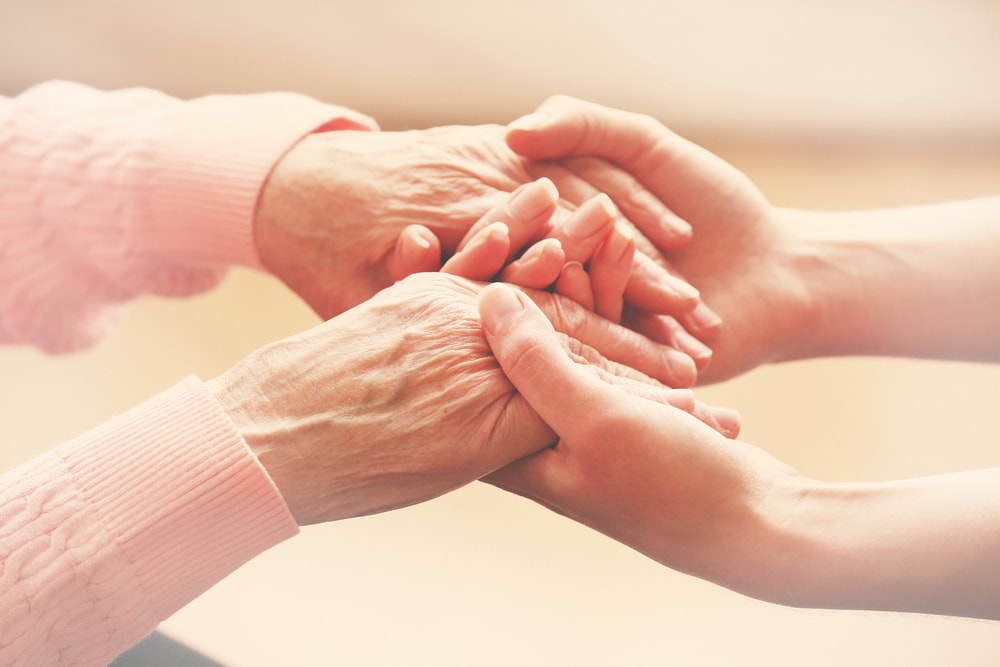Over the years I have encountered numerous myths and misconceptions about divorce-related grief, the most common of which is the notion that it is linear, logical and finite. We expect grief to peak immediately after separation, then slowly subside until, perhaps a few months later, we are mostly pain-free. If only that were true! Separation and divorce shakes our snow globe, causing its vulnerable particles to erratically float around with no end in sight. So it's no wonder that any human being would want those particles to settle quickly, in an orderly, predictable way. Unmet grief expectations are frequently construed as failure. We don't feel the way we think we should, so we conclude that we are not "doing it right." This adds unnecessary suffering to pain. We can create a more accepting relationship with ourselves and our grief when we understand its true nature. To that end, I have created the following list of often-experienced-but-rarely-discussed, long-term emotional truths about divorce:
If you’re still reading this, I imagine you may wondering what can be done to help mitigate the pain of these truths. One of the most important things we can do, post-divorce, is clarify our values (e.g., family, commitment to service, personal accountability, kindness toward others, etc.) and commit to living those values. This sounds simple. But it is not always easy. Furthermore, habits of intentional living take time--sometimes years--to develop. Now is the time to be kind and patient with yourself. Keep in mind that few roads are perfectly smooth or straight. If you find yourself straying from your values, recommit to them. Repeat this process as many times as needed. Finally, keep in mind that the presence of difficult emotion does not signify the absence of coping. All emotions, even the unpleasant ones, signify our humanity. Feelings are a normal, natural part of any living finish. Dr. Jill Gross is a licensed psychologist, therapist, and counselor. She offers grief therapy, divorce consultation, co-parenting support, and other counseling services in the Phinney Greenwood area of Seattle, WA. If you would like help coping with the long-term emotional impact of divorce, follow the link below to schedule a free consultation.
2 Comments
On the cusp of a breakup, separation, or divorce, it is common for people to focus mostly on what they will lose: a spouse or partner, time with their children, relationships with the ex's family and friends. The list goes on and on. As a separation and divorce counselor, I like to help clients honor the pain of loss while reminding them of what will also be gained: relief from the tension of a relationship that wasn't working, the confidence of knowing they can thrive on their own, new experiences with people they've yet to meet. This list, too, can go on and on. When the basic business of just getting by (e.g., getting out of bed, taking a shower, going to work, etc.) seems herculean, it's hard to trust that the future will be bright. But, with a little mindfulness, some time, and some effort, it is possible to thrive after a breakup, separation, or divorce. If you are in the pain trenches of acute loss, here are a few tips to help guide you toward a brighter future:
Even if you don’t believe it right now (which is okay), you are heading toward wherever you are meant to go. What if this ending is an invitation to feel as whole as you already are? Dr. Jill Gross is a licensed psychologist, therapist, and counselor. She offers grief therapy, divorce consultation, co-parenting support, and other counseling services in the Phinney Greenwood area of Seattle, WA. If you would like support in finding the forward path, schedule a free consultation to see how divorce counseling can help. Early grief is a basket of contradictions. The pain tells us to “do” something but everything hurts and there is nothing we want to do. We want the pain to stop but letting it go feels like a betrayal: of the deceased, of us, of our grief. We long for supportive company but accepting well-intended offers from people who have no idea what we are going through makes us feel even more alone. In moments like these, our pain seems unsoothable: nothing can be done or said to make it dissipate. It’s okay to long for the life you had with your loved one. And, it is equally important to keep going forward with life as it is now. There’s a good chance you feel as sad as you do because you deeply loved someone and because you were deeply loved in return. The truest form of love is the unselfish wish for another to be happy, even when we cannot be with them in physical form. By continuing to care for yourself, you are not only honoring the person you lost, you are stepping toward your own aliveness. Which, conveniently, happens to be the best forward path after loss. We do this slowly, one moment, one day, one week at a time. Here are a few tips to help reconnect you with your own aliveness:
Speaking of time, now may be a good one to remind you that, everything, even your pain, is designed to be temporary. You will hurt for a while but you won't feel this way forever. With each day that passes, each forward step you take, you are succeeding are rebuilding your life. And that is more than enough. Dr. Jill Gross is a licensed psychologist, therapist, and counselor. She offers grief therapy, divorce consultation, co-parenting support, and other counseling services in the Phinney Greenwood area of Seattle, WA. Having trouble rebuilding after the death of a parent, spouse, child, family member or friend? Schedule a free consultation to see how grief counseling can help you move forward in a healthy way. In an ambiguous world, few things are both certain and final. Death is one of them, yet many of us don't know what to do when someone we love loses someone they love. As a grief therapist and counselor, I have observed over the years how intricately fear and anxiety are stitched into the grieving process--for both the griever and for his or her support system. The most common fear among those asked to bear witness to grief is that of saying or doing the wrong thing. This is understandable. We would never want loved ones to hurt more than they are already hurting, certainly not by something we said or did. We may err on the side of staying away, giving those in mourning the space we tell ourselves they need, which, if we are totally honest, is really a way of protecting ourselves from the discomfort associated with making a mistake. There is only one problem with this approach. Anyone in mourning will tell you that it hurts most when others say or do nothing at all. People in acute grief are ashamed of their vulnerability. They worry their pain is more than others can bear. Silent phones, empty mailboxes, and shadowless doorways confirm this fear. Losing a loved one is like being dropped, without a map, into a foreign country where we don’t speak the language. Even the most mundane tasks seem unfamiliar or insurmountable. What better time for a friendly face to happen by with a warm hand, kind words, and a sandwich? Here are a seven things you can do to show support for someone who is grieving:
Even if your texts, calls, and gestures go unanswered, I promise you they do not go unnoticed. Your presence communicates to your loved one, "I can handle this. I'm here. You matter." The above tips were originally featured in this article. If you would like more suggestions on how to support someone who is grieving, be sure and check it out! If you have any thoughts on how to show support when a loved one dies, please feel free to share them in the comments section below. Dr. Jill Gross is a licensed psychologist, therapist, and counselor. She offers grief therapy, divorce support, and other counseling services in the Phinney Greenwood area of Seattle, WA. If you've recently experienced a loss and want to know more about how grief counseling can help you find the forward path, schedule a free consultation. The loss of a spouse or soul mate can generate so many questions. In the acute fog of grief, each moment is its own unique world--changing all the time. We wonder about the basics of survival. How will we get through each day? Will we ever feel 'normal' again? As time passes, the content of our questions shifts toward a greater curiosity about what the future holds. We ask who will hold us again or how we will know the time is right to accept new love into our hearts. What follows is a letter from one reader who, five years after losing her beloved soul mate, is grappling with some of these questions and the feelings that go with them. I hope this letter can be of use to any of you who may be wrestling with how to move forward after losing a spouse or partner. Feel free to share your sentiments and questions in the comments section below. I look forward to hearing from you! Dear Dr. Jill, My husband of twenty-five, amazing, fun-filled years died suddenly of an aneurism about five years ago. I’m not exaggerating when I say John was everything to me. He was my lover, my best friend, my traveling companion. We had two beautiful children. We were inseparable. When John died, my life came to a screeching halt. I can barely remember the first year or two after my soul mate's death. There were days when I couldn’t get out of bed or see anyone. I had trouble eating, showering—even parenting my then teenaged children. There were times when the pain was so bad I thought it would kill me. And there were moments when I actually wanted it to, just so John and I could be together. With the support of my family, friends, and church, I slowly crawled out of the dark hole I was in. I started eating, showering, attending church services, and reengaging with my friends and family. Life is still hard without John but I’m managing as well as can be expected. About six months ago, a fellow church member (I’ll call him Chuck) started asking me to do things. A dinner here. A movie there. I’ve known Chuck since before John died, so I assumed he was just being friendly. However, a few weeks ago, Chuck told me he was interested in something more than friendship. At first, I panicked and told him I was not ready to date. I made a few awkward jokes and then quickly changed the subject. I figured all would return to normal and that would be that. Since that night, I cannot stop thinking about Chuck. Each time I do, I instantly think about John and then I feel guilty. I try to push the thoughts about Chuck out of my head. I haven’t been able to do it. It’s been five years since his death and, yet, I feel like I'm being disloyal to John. I’m worried that my children and my church community will judge me if I start dating again. And what if things don’t work out with Chuck? What then? I’ve relied so heavily upon my church since John died, I’m afraid that a relationship with Chuck might jeopardize my place in the community I've come to rely on. I’m so confused. If I have all of these questions, does that mean that I’m not ready to date? Or does it mean that Chuck is not the right person to date? I was with John for so long and things were so easy. I am not sure I know what is normal and what is a sign that I’m making a bad choice. Any advice you have is appreciated. Signed, When To Say When Dear When, If my arms were long enough, I would reach out and hug you right now! The depth of your love and commitment to John came through in your words. I can only imagine how difficult it was for you to learn how to move forward without him. What also came through in your letter was the transformative power of grief. Though it wasn’t easy, after the initial “grief fog” lifted, you leaned into your support system and created a new normal for yourself. This takes courage and tenacity. Thus, it’s no surprise that any man would feel drawn to your strength! The questions you are asking suggest the presence of both fear and its most reliable sidekick, self-doubt. These feelings make sense. The last time your heart was open, it was devastated by loss. Of course you would feel unnerved as the door to your heart slowly creaks open again. Fear, self-doubt, and romantic attraction do not have to spell disaster or disloyalty. They can instead signify the awakening of parts of yourself that have been dormant since John’s death. Aliveness, in whatever form it presents itself, is always a good thing! It is not necessary (nor is it possible) to know how things will turn out with Chuck. In fact, the outcome may matter less than you think. What's more important is the conscious choice to turn toward your own vitality. When granted permission to do so, the heart will naturally make space for more love. John will always be a unique and integral chapter of your love story. Neither his death nor your choice to seek joy with a new partner will change or undo that. In closing, I would like answer your questions with two of my own: What if there were no mistakes? What your grief gave you everything you need to handle this situation? Proceeding as if both of these things are true will go a long way toward figuring out the next best step. Good luck! Yours In Health, Dr. Jill Dr. Jill Gross is a licensed psychologist and grief counselor in the Phinney - Greenwood area of North Seattle. If you are struggling with the death of a spouse, help is just a click away. Schedule a free consultation to see how grief therapy can help you rediscover your own aliveness! Valentine's Day. Some dread it. Some love it. Some view it as just another day. For those who've recently lost a partner or spouse, Valentine's Day can be especially rough. Today's post is about grief. May it reach the hearts of those who are grieving, today and every day. As a grief therapist and counselor, friends and family sometimes ask, “Does it burn you out to sit, all day, listening to sad stories, told by sad people?” Clients make similar inquiries. They wonder if their grief, like a virus, is contagious. Actually, sitting with grieving people has the opposite effect. Just like an expectant mother’s contractions, grief is pain with purpose. Though people are sad, angry or scared when they are grieving, typically, they are also learning something significant--about themselves, their relationships, their families, their friends. What’s more, grief brings with it an indescribable openness that, if handled appropriately, fosters deeper connections, both inside and outside the therapy room. What could be more energizing than that? Grief is a normal, natural side effect of love and loss. So why are so many of us quick to judge or criticize ourselves when we are grieving? In an age where we are one click, tap, or swipe away from just about anything, it’s easy to assume we are in pain because are doing too much of one thing, not enough of another, and/or because we haven't downloaded the right app yet. This assumption is untrue. In fact, leaning into grief helps us accept it as a naturally occurring process that needn’t be controlled. One of the most frequent questions encountered in my therapy practice after a loved one dies is, “How long will this last?” or “When will I feel normal again?” To this, I usually answer, “That depends. How long will your loved one be dead?” Sure, this answer makes me guilty of the age-old therapist / counselor stereotype of answering a question with a question. But it also validates what clients already know: because their love is life-long, so too will be their grief. When clients hear this, the relief in the room is palpable. Dr. Elizabeth Kubler-Ross once thought of grief as a circumscribed process consisting of five stages: denial, anger, bargaining, depression and, finally, acceptance. Experts now believe that grief is a fluid, non-linear process. The “stages” of grief are more like “areas”--rooms that we wander in and out of, depending on our circumstances (e.g., anniversaries, birthdays, holidays, etc.). In fact, we can feel all of the areas of grief, sometimes in the same day, at the same time, and in no particular order. Though there is no magic pill to eradicate or hasten grief, here are six things that can help facilitate healing after loss:
Moving forward with life after death sounds simple. But it is far from easy. If you are feeling stuck or frustrated by grief, it may be wise to seek assistance from a qualified grief therapist or counselor. Feel free to get in touch for a free consultation to see if therapy or counseling is right for you. You can also find valuable grief-related resources, including counselors and groups in your area, here. Remember, grief is how the body, mind and spirit heal after loss. It changes us. It soften our edges. It opens our hearts. Surrender to grief and let it's powerful current carry you wherever you are meant to go. Dr. Jill Gross is a licensed psychologist, therapist, and counselor. She offers grief therapy, divorce support, and other counseling services in the Phinney Greenwood area of Seattle, WA. If you've recently lost a loved one and want to feel better, schedule a free consultation to find out how grief counseling can help you!
The digital age has neatly divided us into two categories: those who have had their personal data compromised and those who will. Most of us think of financial institutions, cell phone providers, and insurance companies when we think of data breaches. But what happens when the invasion of privacy occurs right in your own living room? The following letter was submitted by a reader who wants an answer to this very question. Let's dig in! Dear Dr. Jill, My fiancé (let’s call her Tammy) and I have been together for about six months. After three months, we moved in together. We recently got engaged and are talking about an August 2018 wedding. I am 25. She is 27. Neither of us have been married before. The reason I’m writing to you is because of something I found on Tammy’s phone recently. While she was in another room, I saw a text message from an unrecognized number. No name. Just the words “Hi. Can you talk tonight?" When I saw the message, my heart started to race and my mind went crazy! I’m embarrassed to say what came next. I know I shouldn’t have done it but I opened Tammy’s phone and read the text history. Turns out that Tammy and "the mystery man” have been trading raunchy messages, sexy photos, etc. for over a month! I am in a total state of shock. The idea that Tammy could do this to me…to US…just devastates me. While we have been planning our future, she has been carrying on like that with someone else. Things haven’t been the same since that night. Here’s the kicker: I feel so guilty for snooping on her phone, I haven’t told her what I saw. I have been quiet and keeping to myself. When she notices I am acting weird, I lie and tell her I am not feeling well. I think I’m just stalling, trying to figure out where to go from here. I know it can’t go on like this forever. I talked with a buddy who told me I should just cut my losses. But that feels too severe. Pretending like nothing happened really is starting to make me feel sick. I can’t eat or sleep. I’m nervous all of the time. Can you help me? Thanks, Worried About The Future Dear Worried, With all that you are holding right now, no wonder your body is feeling sick! Let's see if we can sort a few things out, on both the micro and macro level, and, hopefully, lighten the load a bit. On the micro level, I see two issues here: your partner's behavior and the means with which you discovered it. It is painful enough to learn that a person you love hasn't been honest with you but it’s even more complicated when that information is ill-gotten. When facts are uncovered this way, I usually encourage people to first weigh the potential consequences of saying something vs. saying nothing. When there is relatively little at stake, silence is probably the best bet. However, given that remaining silent appears to be upsetting both you and Tammy and given that August is just around the corner, the stakes here seem pretty high to me. To disentangle a relationship from dishonesty, one or both partners must speak the truth. Since Tammy did not choose to tell you about the mystery man herself, I encourage you to make the first move. More on that in a minute. Now for the macro. After six months of courtship, how well can any two people know each other? The short answer is "not super well." For the first two years of any romantic relationship, we are awash with a hormone (Oxytocin) that hijacks the body and puts the brain on hold for a while. Under its spell, it's easy to see our partners through rose-colored glasses, overlooking behaviors that would otherwise be considered red flags. After about six months to two years, oxytocin slowly leaves our systems, our brains come back online, and our hearts and heads join forces to determine if the object of our infatuation is a decent long-term bet. The determinant of long-term compatibility is not the butterflies in our stomachs; it's commonality of our values (e.g., monogamy). I believe that partners have affairs to solve a problem or avoid a problem. When couples consult with me post-infidelity, I always want to know the unique meaning or purpose that the affair served for the person who chose it. Without this information, it's hard for any healing to take place. While only you can decide whether to stay or go, your recent discovery suggests it may be wise to pause and gather a bit more information. I encourage you to schedule a time to talk with your partner. Tell her what you saw. If you're not sure where to go after that, try something like, "It was wrong of me to violate your privacy and I completely understand if you are upset. Now that the secret is out, I would like to discuss the situation openly with you." The result of these talks will likely deepen your knowledge and understanding of each other, which is good for any relationship regardless of the outcome. Deception is painful and rebuilding after betrayal can take a while. Slowing things down a bit will give you and Tammy the time each of you deserves to make a well-informed decision about the next best step. In the meantime, if the conversations get too overwhelming, I recommend seeking assistance from a qualified couples therapist. Having a well-informed, neutral third party in the room can make a huge difference. Good luck to you both and thanks for writing in. Yours In Health, Dr. Jill Dr. Jill Gross is a licensed psychologist, therapist, and counselor. She offers grief therapy, divorce support, and other counseling services in the Phinney Greenwood area of Seattle, WA. Money. It's a loaded topic. So loaded that it happens to be one of the three most common things couples fight about. Sex and children are the other two. Just in case you were wondering.
Last week, a reader asked for help with compulsive spending behavior. Since this issue is actually quite common, I am posting both the letter and the response here on the blog. If you've got thoughts on this subject, feel free to share them in the comments section below. Dear Dr. Jill, I have a little spending problem. Actually, if I’m really being honest, the problem is more than little. I seem to have a penchant for maxing out credit cards. I maxed out three credit cards in ten years. Whenever I saw something I wanted, I was pretty good at convincing myself I *had* to have it, even though, deep down, I knew I really couldn’t afford it. After making a purchase, I would feel good for a while. But then the bills I couldn't pay would show up at the end of the month and I would end up feeling guilty. I was hopeful for change when, three years ago, I met and got engaged to a really wonderful man. When my fiancé and I met, he had a good job. He was really good with money (he had no debt because he preferred to pay cash for everything). In an effort to start our financial lives off with a clean slate, my fiancé agreed to pay off my debt. I thought my problems were solved! We shredded all of my credit cards too. I felt scared about the idea of not having any credit cards but I also felt free. My fiancé put us both on a budget that I promised to stay within. This seemed to work for a while. A few months ago, I received a credit card offer in the mail. I knew it was a bad idea but I went for it anyway. Here’s the worst part: I didn’t tell my fiancé. I can’t say for certain why I didn’t tell him. I guess I thought I could handle it on my own. I was wrong. I told myself I would use the card only for emergencies. But, a few weeks into it, I started making purchases. A pair of winter boots here, a new sweater there and so on. I told myself I would take care of it by the end of the month but, when the bill came, the balance was more than we had in our checking account! Afraid that my fiancé would find out, I shredded the statement and told myself I would take care of it next month. That was almost two months ago and I still haven’t done anything. The wedding date is now three months away and we will soon be required to make the final deposits for the caterer, venue, etc. If we pay off my new credit card, we won’t have the money to pay the vendors for our wedding. I’m scared to tell my fiancé what happened. I’m afraid he will be mad or, worse yet, end our relationship. He is really the best thing that has ever happened to me. I don’t want to screw this up. Can you help me figure out what to do? Signed, Secret Spender Dear Secret Spender, I am relieved that your secret has finally been given a voice! Engagements and weddings can bring up a lot of complicated feelings. I’ve yet to meet anyone (well--anyone who is being totally honest!) who hasn’t had at least some fear or self-doubt prior to getting married. “How will marriage affect my independence?” and “What if the relationship doesn’t work out?” are two of the most common questions asked by the betrothed. Perhaps the recent bout of spending is your way of grappling with these questions, without addressing them directly. Compulsive behaviors, such as drinking or spending money, are often used to help mitigate painful or difficult emotions, like fear or self-doubt. The only trouble is, by engaging in compulsive behaviors, we end up creating more of the feelings we were hoping to assuage in the first place! In other words, you are now quaking in the very boots that were originally meant to keep some of your fears at bay. When we choose to make something a secret, we give it power. It’s possible the latest transgression may be inviting you to reclaim this power, first by telling your fiancé exactly what happened. It is better your partner hear it from you than a disgruntled wedding vendor or agent seeking to resolve a debt he is completely unaware of. Regardless of what your partner chooses to do with the new information, you will have taken a bold, brave step toward reestablishing trust in the relationship. Assuming you both choose to proceed with the relationship, you and your partner, as a united team, can make informed decisions about how to meet your impending financial obligations. Another way to empower yourself is by seeking therapy with a qualified addiction specialist. A professional of this nature will have the skill set needed to help you learn constructive new ways of managing discomfort while protecting yourself and the relationships you treasure. Organizations like Debtors Anonymous are also great places to get support from like-minded individuals. Compulsive spending is treatable but it can also be tenacious. So I urge you to consider getting the support you deserve and committing to it for the long haul. You’ve made an important first step by sharing your secret with this community. I encourage you to keep the conversation going, both with your partner and with a good therapist. Thank you for writing in! Yours In Health, Dr. Jill Dr. Jill Gross is a licensed psychologist, therapist, and counselor. She offers grief therapy, divorce support, and other counseling services in the Phinney Greenwood area of Seattle, WA. Young people fantasize about their futures: graduations, careers, love, partnership, children, grandchildren, retirement, and the ability to live independently until they die peacefully in their sleep. I am willing to bet none will envision being part of the roughly thirty percent of elderly individuals who require assistance with daily living.
Average life expectancies, living expenses, and healthcare costs are increasing. So too are the number of adults between the ages of 40 and 60 caring for their elderly relatives while parenting their own children. They’ve even been given a name: The Sandwich Generation. Recently, I was asked by Jamie Tompkins of Q13 Fox News to talk about the growing number of individuals who are straddling the roles of parent and caregiver. You can see the interview here. Whilst preparing to speak with Jamie, my thoughts drifted to Dorothy, my beloved grandmother. From the time I was a little girl, Dorothy would talk to my mother, sister, and I—anyone in the family who would listen really—about her values and goals around aging and death. I recall driving by elder care facilities and hearing Grandma sigh and say, mostly to herself but audibly enough for others to hear, “I hope I never have to live there. That place is for old people.” Anyone who knew Dorothy knew independence was her top priority. She never wanted to be a burden to her children or grandchildren. Dorothy’s husband, my grandfather, Donald, was a exquisite stained glass artist. There was always a new lamp shade, wall hanging, or sun catcher in their home and, what he didn’t display in his home, he gave to the people he loved. Anytime my mother, sister, or I would fawn over one of his latest creations, Grandma would always say, “Put your name on it!” At the time, this felt something akin to the cops showing up just as the party was getting started. My thoughts would immediately shift from the beautiful objet d'art to the day we all knew was coming but nobody wanted to think or talk about. Not cool, Grandma, not cool! These were always moments of conflict for me. I wanted Grandma Dorothy to live forever; she wanted the opposite. And she wasn’t shy letting us know about it. Usually when we least expected it. Though these comments seemed slightly harsh at the time, in hindsight, they were actually gifts. Grandma seized a topic my family would have otherwise shoved to the farthest, darkest reaches of the storage closet and thunked it right down in the middle of the kitchen table. She forced us to deal with death and, in doing so, made the idea a little less scary. At age 84, when Grandma Dorothy was placed on life support due to complications from an automobile accident, our family’s choice was painful but clear. And we had Grandma’s morbid sense of humor to thank for it. Grandma Dorothy, along with the numerous sessions I’ve had with the brave and hardworking members of The Sandwich Generation, were the inspiration for much of the advice I had for Jamie. Since the magic of editing transformed an hour-long conversation into a five-second news clip, I’ll give you the highlights of what didn’t make it into the reel:
Talking about later-life care can be painful and awkward for your children. But it’s better for your children to have a few awkward moments than a potential lifetime of regret or confusion about whether or not their mother or father got the quality, end-of-life care they deserved. Thanks to Q13 Fox News for being the voice of The Sandwich Generation and to the brave soldiers who are striving to balance caring for themselves, their children, and their elderly relatives. I wish you all quality time with your loved ones this Thanksgiving! Dr. Jill Gross is a licensed psychologist, therapist, and counselor. She offers grief therapy, divorce support, and other counseling services in the Phinney Greenwood area of Seattle, WA. Need help navigating a transition?
Howdy folks! In my years of being both a participant and leader of therapy groups, public speaking engagements, etc. I’ve learned that, if one person has a question, chances are, others in the group have the same (or similar) question. If that question never gets asked, then no one gets the benefit of learning from it! It is for this reason I’ve decided to experiment with something a little different.
Over the past few months, I’ve gotten so many great questions via “Ask The Shrink,” that I’ve decided to publish them here on the blog. The question below is one I recently received from a reader and, given the frequency with which the topic comes up in my therapy and counseling practice, I couldn’t wait to share it with the rest of you! So, if you’ve got a question, click here to ask it and you may just see your question answered in a future blog post! Of course, all identifying information will be omitted to protect your anonymity. Hi Dr. Gross, I have a problem with my boyfriend's mother. My boyfriend and I have been dating about two years. We are both in our late 20's. My boyfriend's mother has a history of not liking her other children's "significant others." However, it really bothers me that his mother is so standoffish and judgmental towards me. Her tone and eyes are cold and she rarely offers positive affirmations of my life happenings. It makes me feel insecure and sad. My boyfriend is sad about it too. He talks to his dad who is also uncomfortable with his wife's behavior. I want to have a happy relationship with her. It is especially scary to imagine marrying my boyfriend and having her for a mother-in-law. Not sure what to do... I look forward to hopefully reading guidance you may have. Best Wishes, "Maybe-in-Law" Dear Maybe, First of all, thank you for broaching this topic! Learning how to relate to a partner’s family can be quite complex, particularly when members of that family seem reluctant to engage. When I read your letter, the first thought I had was that your boyfriend’s mother feels exactly the way her actions make you feel: sad and insecure (scared). Parenthood is a complicated stew of emotions: we want our children close yet we must also accept that they do eventually grow up. I think your partner's mother is grappling with this very issue and, rather than acknowledging the fear and sadness it often evokes, she is taking it out on the poor, unsuspecting partners of her now-adult children. In this case, that unsuspecting partner is you. You feel sad and insecure for a good reason: no one wants to be pushed away by a member of their beloved's family! If there is anything to be said or done about this, your boyfriend is the best candidate for the job. Assuming he hasn’t already done so, I would encourage him to talk with his mother and say something like, “Mom, I love you and my girlfriend so much. Nothing would make me happier than for all of us to be close and have fun together. How do you think this can happen?” This question states your boyfriend’s wishes clearly while enlisting his mother to be part of the solution. Win-win! If your boyfriend’s mother denies her behavior or gets defensive, he gets to decide the best way to set appropriate boundaries with his mother while protecting his allegiance to you. Then, the two of you get to decide on your own how much time you choose to spend with someone whose actions leave you feeling sad, insecure, or both. The fact that her son is ready to start a life and family of his own is a testament to what a good job his mother has done...she just doesn't know this yet. Keep in mind that time and consistent kindness can thaw even the iciest conditions. Though things may be a bit frosty right now, if your boyfriend’s mother continues to witness how happy you make her son, she may eventually conclude that the best way to honor him is to accept the person he is choosing to spend his life with. Thank you again for entrusting this community with your question. Best wishes to you as you navigate this challenging situation! Yours in health, Dr. Jill Speaking of community, have any of you successfully worked through in-law issues? We would all benefit from knowing how you did it! Please share your story in the comments section below. Also, feel free to share this post with anyone who may be asking their own version of this question! Dr. Jill Gross is a licensed psychologist, therapist, and counselor. She offers grief therapy, divorce support, and other counseling services in the Phinney Greenwood area of Seattle, WA. If you've got questions about your own relationship, schedule a free consultation to find out how therapy or counseling can help you! |
AuthorDr. Jill Gross is a licensed psychologist, specializing in grief and divorce. Her coaching and therapy practice is located in the Phinney - Greenwood area of North Seattle in Washington. Archives
May 2021
Categories
All
|
HoursM-TH: 8:30 AM - 2:00 PM.
By Appointment Only |
Telephone & Email |
Address503 N. 50th Street
Seattle, WA 98103 |
*Header Photographs courtesy of Josh Martin












